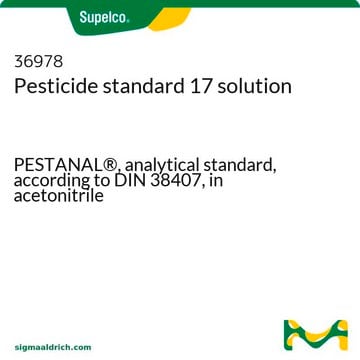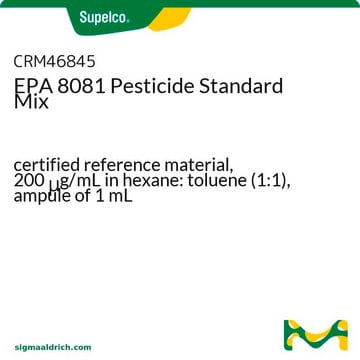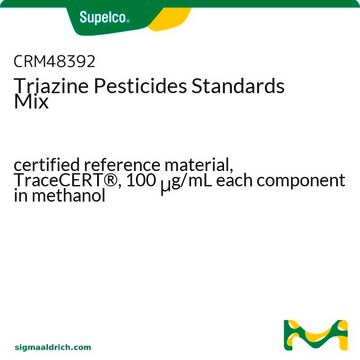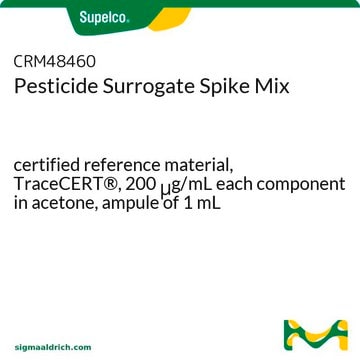03992
Amiprofos methyl
PESTANAL®, analytical standard
Synonym(s):
O-Methyl O-(2-nitro-p-tolyl) N-isopropylphosphoramidothionate
About This Item
Recommended Products
grade
analytical standard
reference material
product line
PESTANAL®
Assay
≥98% (GC)
form
powder or crystals
shelf life
limited shelf life, expiry date on the label
mp
~65 °C
application(s)
agriculture
environmental
format
neat
storage temp.
2-8°C
SMILES string
COP(=S)(NC(C)C)Oc1ccc(C)cc1[N+]([O-])=O
InChI
1S/C11H17N2O4PS/c1-8(2)12-18(19,16-4)17-11-6-5-9(3)7-10(11)13(14)15/h5-8H,1-4H3,(H,12,19)
InChI key
VHEWQRWLIDWRMR-UHFFFAOYSA-N
Looking for similar products? Visit Product Comparison Guide
Biochem/physiol Actions
Legal Information
Signal Word
Warning
Hazard Statements
Hazard Classifications
Acute Tox. 4 Oral
Storage Class Code
11 - Combustible Solids
WGK
WGK 3
Flash Point(F)
Not applicable
Flash Point(C)
Not applicable
Personal Protective Equipment
Certificates of Analysis (COA)
Search for Certificates of Analysis (COA) by entering the products Lot/Batch Number. Lot and Batch Numbers can be found on a product’s label following the words ‘Lot’ or ‘Batch’.
Already Own This Product?
Find documentation for the products that you have recently purchased in the Document Library.
Our team of scientists has experience in all areas of research including Life Science, Material Science, Chemical Synthesis, Chromatography, Analytical and many others.
Contact Technical Service








